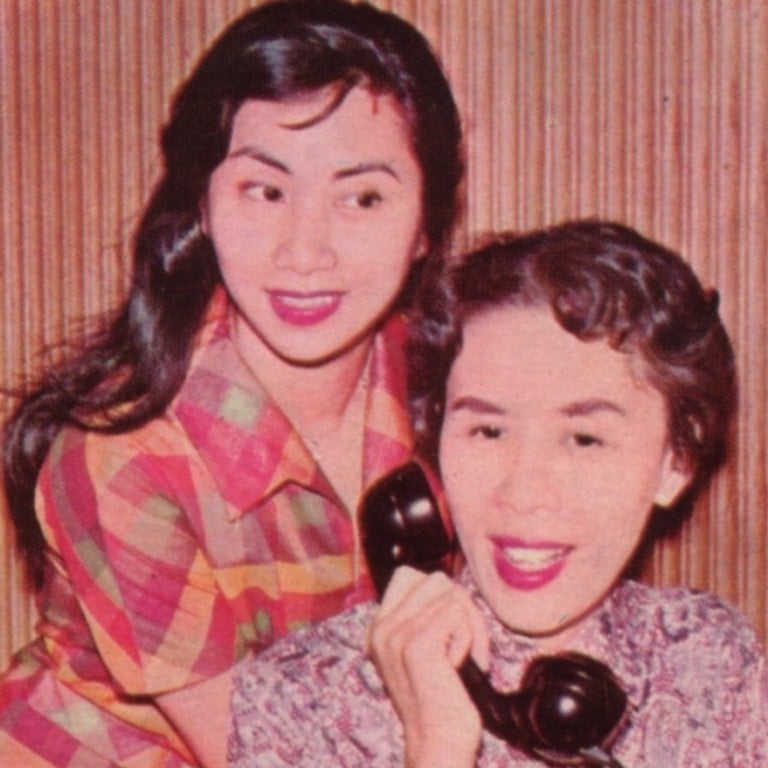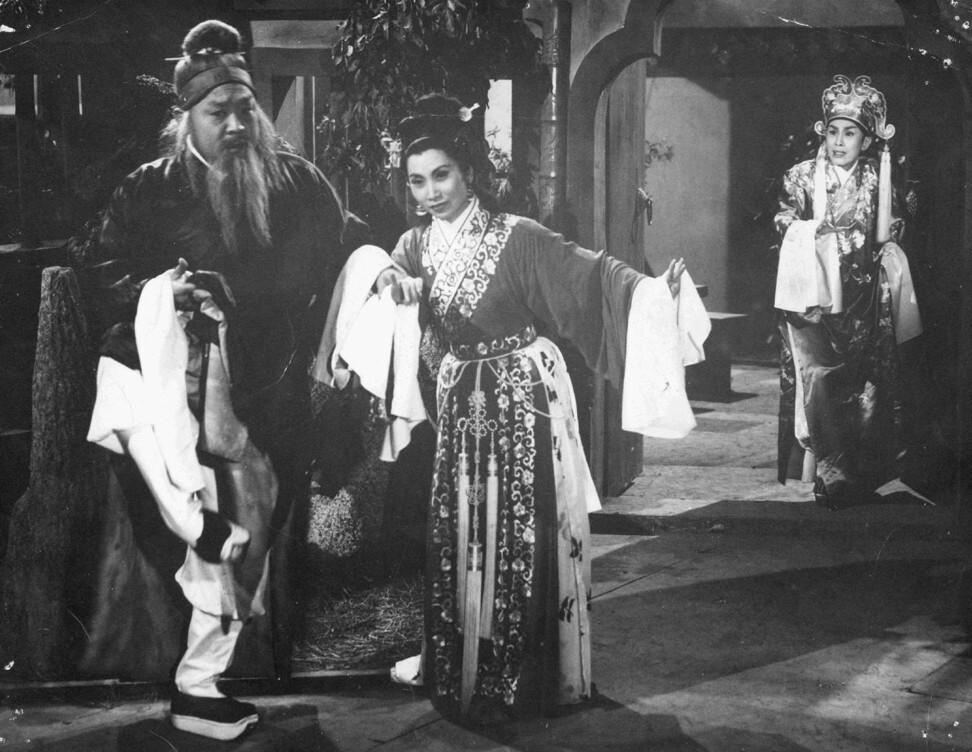How Cantonese opera legend Pak Suet-sin, LGBT icon and Yam Kim-fai’s lifelong acting partner, pushed gender norms to make Chinese movie history

Pak Suet-sin (白雪仙) is a renowned Cantonese opera diva who strove to improve and enhance the art form and nurture young talents to ensure the continuity of Cantonese opera.
Together with Yam Kim-fai (任劍輝), her lifelong collaborator, they staged a diversity of well-known operas in their bid to make Cantonese operatic art more accessible.
We take a look at her legendary life, flashing back to her career heyday spanning from the 1940s to 1960s.
Her father was one of the ‘Four Kings of Cantonese Opera’

Pak was born Chan Shuk-leung in 1926 in Shunde, Guangdong, while her father, Pak Kui-wing was one of the “Four Kings of Cantonese Opera”. Her whole family moved to Hong Kong during the Second Sino-Japanese War (1937-1945).
Later when Pak turned 13, she told her parents that she wanted to be a Cantonese opera singer. Although her father didn't want her daughter to follow in his footsteps, he finally agreed when Pak showed her insistence and enthusiasm for the artistry.
Pak then began her apprenticeship under Sit Gok-sin (薛覺先), one of the grandmasters in the Cantonese theatre tradition, and started using the stage name Pak Suet-sin.
She was the co-founder of Sin Fung Ming Opera Troupe

As a young novice, Pak first appeared in many supporting roles with a number of well-known companies, before becoming a principal actress at the age of 16.
In 1943, the 17-year-old Pak joined the Sun Sing Company where she met her perfect lifetime collaborator in the art performance, Yam Kim-fai.
Together in 1956, they established the Sin Fung Ming Opera Troupe. Cantonese opera masters Liang Tsi-pak (靚次伯) and Leung Sing-po (梁醒波) became key acting members of the troupe, while they hired Tong Dik-sang (唐滌生) as their playwright.

Throughout the years, the troupe's prominent operas have all become household names, including Dream of the Red Chamber (紅樓夢), Princess Cheung Ping (帝女花), The Legend of Purple Hairpin (紫釵記), The Regeneration in the Red-Plum Chamber (再世紅梅記) and The Peony Pavilion (牡丹亭驚夢).
These operas were a harmonious marriage of the operatic performing arts and Chinese classical literature, and cemented Sin Fung Ming's leading status in the development of Cantonese opera.
Her playwright, Tong Dik-sang, died during the premiere of The Regeneration in the Red-Plum Chamber

Penning more than 400 scripts during his career, Tong Dik-sang was arguably one of the most talented and prolific playwrights in the history of Cantonese opera.
Tightly woven plots, vivid characters and moving storylines were the hallmarks of Tong’s works, and his evergreen plays made him representative icon of the culture of Cantonese opera.
Perhaps it’s true that those who the gods love die young. On the evening of September 14 in 1959, while attending the premiere of The Regeneration in the Red-Plum Chamber at the Lee Theatre in Causeway Bay, Tong suffered a cerebral haemorrhage and fell unconscious. The 42-year-old was rushed to hospital but was certified dead the following day.
The classic Cantonese opera movie Tragedy of the Poet King actually lost her money

In 1964, Sin Fung Ming started to shoot the first and only Cantonese opera movie made by the troupe – Tragedy of the Poet King (李後主).
The film finally wrapped in 1967 and opened on screens in January of 1968. Although the film was critically acclaimed and broke the box office record, it still lost the troupe money in the end.
“In that era, the production expenditure of a coloured film was around HK$60,000 to HK$70,000. I thought that if we had the budget of HK$400,000 (US$52,000), it would be far enough for a great movie,” Pak said in an interview with RTHK for the TV program Success Stories in 2005.
“The costume worn by Yam in the movie was made out of genuine silk with hand embroidery. We indeed spent a lot of money on the set design, the costume and the cast, some of the scenes even involved more than 1,000 actors – these all made the final expenditure exceed HK$1 million.”
That was a huge amount in terms of production fees at that time. But despite the loss of money, Pak’s contribution significantly raised the bar for cinematic quality and effect.
Her association with Yam spanned 40 years and 60 movies

First meeting in 1945 while performing with the Sun Sing Opera Troupe, Yam and Pak’s association would go on to span some 40 years and 60 movies.
Typically, Yam played sang (male character) and Pak played dan (female character). They were deemed a perfect match both on stage and on the silver screen and their lifelong partnership and collaboration was one of the most popular and storied tales among opera and movie lovers.

In an era when the terms “homosexuality” and “lesbianism” barely existed, Yam made romance in its most platonic and nonthreatening form appealing. The appeal she represented was also mirrored off-screen by the perception of her relationship with Pak – and while neither actress talked openly about their private lives, their gender-bending on-screen interplay enshrined them as heroes to the LGBT community.
In 1989, Yam passed away. In remembrance of her best friend, Pak quoted a verse from an ancient classic poem, Yellow Bird – “Could his life be redeemed, I would have given a hundred lives for him” – as an expression of her deepest grief.
Want more stories like this? Sign up here. Follow STYLE on Facebook, Instagram, YouTube and Twitter .

Founder of the Sin Fung Ming Opera Troupe and daughter of Pak Kui-wing, Pak Seut-sin made romance in its most platonic form nonthreatening through her on-screen relationship with Yam Kim-fai, in an era where the terms 'homosexuality' and 'lesbianism' barely existed